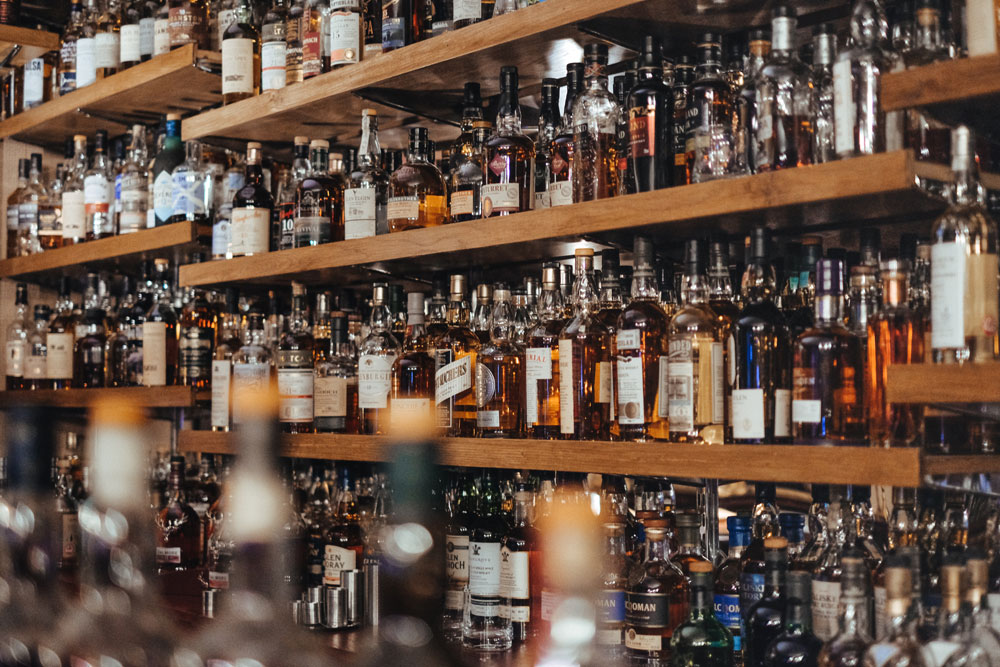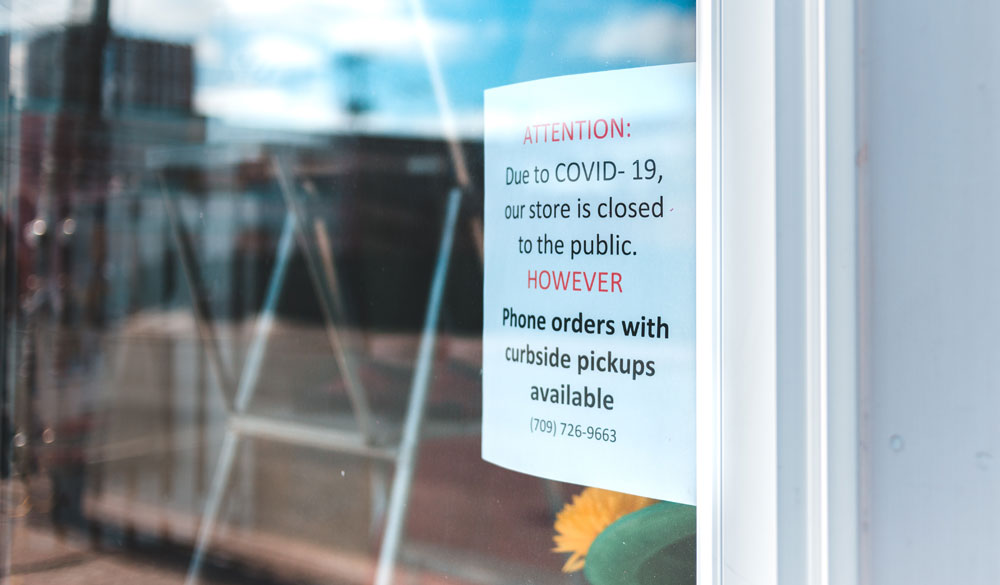As bar and restaurant owners deal with the fallout of COVID-19—including how government-mandated shutdown orders have impacted their ability to pay their rent and employees—attorney Robert Lewis of Spiritus Law in Miami says there is another threat owners of these businesses need to be aware o: How the lack of cash flow could threaten their ability to hold and maintain a liquor license, which puts the very essence of their business at risk.
As a result of the high cost of liquor licenses in many jurisdictions, many bars must finance the purchase of a license. With little revenue coming in due to COVID-19, they could be found in default and risk losing their license if they are unable to make the payments.
Lewis cited the example of a case he recently handled representing Homestead, Florida Bar Owner Caridad Herrera. Her bar, Cafe 293, had recently opened in January, and she had financed the purchase of a liquor license. After Miami-Dade County shut down non-essential business in early March due COVID-19, Caridad found herself unable to make the payments on her liquor license. Afraid of having her license foreclosed on due to not being able to make payments, she contacted Spiritus Law, which was able to negotiate a forbearance with the lender and work out an agreement that worked for both sides.
Below, we spoke with Robert Lewis about how liquor licenses could be at risk in the current climate, and what the options are for bar owners.

Bar Business Magazine (BBM): Tell our readers a bit about Spiritus Law and what you offer to bars/restaurants.
Robert Lewis (RL): Spiritus Law provides regulatory compliance and business operational guidance for the hospitality and alcohol industry including bars and restaurants. We guide our clients from their initial project and business ideas through the maze of federal and state regulatory licensing including alcohol and food service licensing as well as all local business permitting including certificates of use and other business tax licenses. Once we are able to assist our clients in obtaining all their required licenses and permitting and opening their business on time, we assist with ongoing compliance issues related to any litigation threats, on-site violations related to food and alcohol service, marketing and advertising campaigns, business sales or acquisition, ownership changes, venue changes, and on-site training.
BBM: How could COVID-19 impact a bar/restaurant/nightclubs’ ability to maintain their liquor license?
RL: At the moment, the biggest threat is the main interruption to on-site services that is crippling the industry as whole. The hospitality industry is meant to serve, and COVID-19 has required businesses to pivot quickly not only in how they can service the public, but also in how they will manage the extreme loss of business from the elimination of on-site traffic. Many states require that alcohol licenses be purchased from existing owners on the open market because they do not qualify, either due to size or limited food menus, for state-issued alcohol licenses that are much cheaper in initial cost. As a result, many small restaurants and bars have monthly finance payments they must make to either a traditional or private lender much like you would make on a mortgage or car payment. Due to the sudden loss of income, many of these businesses are unable to make their payments and are in jeopardy of losing their licenses. In some cases, alcohol licenses have been placed as collateral on commercial property leases or even equipment leases and are therefore in jeopardy of foreclosure due to missed payments.
Even where a license has not been financed, state regulations may require that licenses be placed in escrow when not in active use or may require filing of $0 sales reports during the closure period. These regulatory requirements become especially important as businesses look toward reopening and need to be sure they are compliant with all regulatory requirements.
BBM: If an establishment finds itself unable to make payments on its liquor license, do you have any advice on what it can and should do? What options are available?
RL: The first step is always to contact your lender and discuss your options. But, remember you don’t need to make a decision in one phone call. Seek the advice of legal counsel as soon as practical and possible to review your options and make the best long-term decision for you and your business. The most obvious solution is usually temporary forbearance of payments pending re-opening or even temporary reductions in payments that can be brought back to the originally negotiated payment schedule in time as business and sales elevate. In many cases, lenders are equally eager to work out a realistic payment plan and provide alternative payment options for their customers. There may be additional means of collateral or security that can be offered in exchange for changes to payment schedules. However, business owners need to be realistic in their re-opening prospects and annual income projections in light of continued social distancing protocols that may not only impact re-opening schedules, but also may impact the new normal and ongoing on-site operational requirements. In some cases, selling a liquor license now before prices continue to drop may be the best option for struggling businesses that may not be able to catch-up on payments and need to liquidate assets.
Having to sell or forfeit a liquor license may not mean you need to sell your business. Bars generally need full-service liquor licenses to operate and there may be other licensure options in your jurisdiction that do not require purchase of an expensive liquor license. Small restaurants that do not qualify for other state-issued alcohol licenses may be able to temporarily eliminate alcohol service or reduce alcohol service to beer and/or wine only as limited alcohol licenses are generally cheaper in some jurisdictions or may even be offered by the state at a nominal cost.
For example, in Florida, a quota alcohol license that allows for the sale of beer, wine, and spirits ranges in value depending on the jurisdiction but will be upwards of approximately 150K to 175K (depending on potential market fluctuations) in major counties
like Broward and Miami-Dade. However, a beer and wine only license is issued by the state at a nominal cost.
Placement of alcohol licenses usually requires local zoning approval in most jurisdictions so be sure to look into the permissibility of specific alcohol license types in your jurisdiction.
BBM: What other ways have you seen COVID-19 impacting bars and restaurants?
RL: Aside from loss of business and income, is the immediate effect of those issues – loss of employees. In many cases, bars and restaurants were forced to immediately lay-off or furlough staff including chefs, bartenders, and servers. The loss of trained staff is economically detrimental especially from a re-opening perspective as some staff members may be ill, re-employed at other venues, or may choose not to return to work for other reasons including child-care while schools remain closed. Training staff requires significant time and investment, which are both limited right now for many business owners.
Another huge impact is in the loss of brand identity as the visual benefit of onsite marketing is lost. Many business owners are quickly needing to invest and learn about technology they weren’t yet ready to dive into, like online sales and take-out/delivery applications. The switch to off-premise sales and delivery requires a huge investment in itself. It is not just in training employees and quickly developing new food preparation and service protocols, but also it is developing new technology for point of sale systems. Not all restaurants were equipped to make the immediate switch to the sales and service operations.
BBM: Do you have any advice for owners having trouble paying their rent? What are their options?
RL: Similar to any issues with making payments on financed liquor licenses, business owners should seek legal counsel and first contact their landlords and explore payment options that are realistic for long-term financial needs and projections based on their altered business models. In some cases, business owners may be able to find new tenants that can sublease their venues. Alternatively, business owners can explore sale options that can include ongoing consulting services to provide a smoother transition and some continued income for exiting business owners.
Additionally, some jurisdictions have implemented moratoriums on mortgage and rent payments that may offer immediate relief. In other cases, state governments have activated other mortgage and rent relief programs that may be available. Business owners should consult with the local SBA offices to learn more about available relief and loan programs in their areas.
Robert F. Lewis is Co-Founding Partner of Spiritus Law in Miami.










